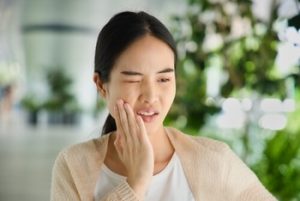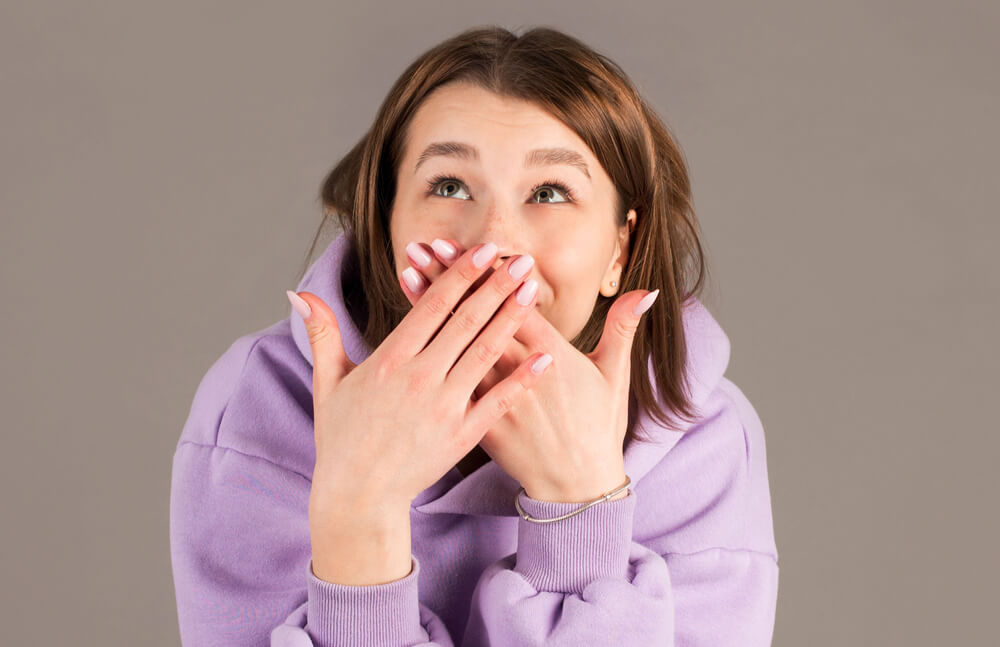You’ve just enjoyed a night out with friends, sipping on your favorite wine, beer, or cocktail. But the next morning, something feels off; your gums are sore, tender, or even bleeding. You might be wondering, “Why do my gums hurt after drinking alcohol?” The answer may surprise you. While an occasional drink might not seem harmful, regular or excessive alcohol consumption can take a serious toll on your gum health and overall oral well-being.
In this blog, we’ll explore the connection between alcohol and gum health, the possible causes of gum pain after drinking, and what you can do to protect your teeth and gums.
Alcohol and Your Gums: What’s the Connection?
How does alcohol affect oral health?
Alcohol affects more than just your liver. When it comes to oral health, alcohol can alter your mouth’s environment in several ways. It lowers saliva production, increases bacterial growth, and often contains sugar or acids that harm your teeth and gums. Together, these effects can create a perfect storm for oral health problems.
Let’s dive into some of the major ways alcohol affects your gums and mouth:
Dry Mouth: The Hidden Trigger Behind Gum Discomfort
 One of the biggest issues with alcohol is that it causes dry mouth. Alcohol reduces saliva production, which is essential for flushing out food particles and neutralizing harmful bacteria.
One of the biggest issues with alcohol is that it causes dry mouth. Alcohol reduces saliva production, which is essential for flushing out food particles and neutralizing harmful bacteria.
Without enough saliva, your mouth becomes a breeding ground for bad bacteria. These bacteria irritate the gum tissue, leading to soreness, inflammation, and even bleeding gums. If you regularly consume alcohol and notice dry mouth or gum discomfort, this may be the starting point of a deeper issue.
Alcohol Can Erode Your Tooth Enamel
Sugary drinks like sweet cocktails, mixers, and even red wine or white wine are highly acidic. Over time, this acidity can erode your tooth enamel, leaving your teeth and gums vulnerable to tooth sensitivity, tooth decay, and irritation.
Enamel erosion exposes the dentin beneath your teeth, which can irritate the surrounding gums. Combine this with dry mouth and bacterial growth, and you’ve got a recipe for gum pain after drinking alcohol.
Gum Disease and Alcohol: A Troubling Relationship
If you’ve ever asked, “Why do my gums hurt after drinking alcohol?” the answer might lie in an existing or developing gum disease.
Regular alcohol consumption has been strongly linked to the risk of gum disease. According to studies, heavy drinkers have a greater risk of gum recession, tooth loss, and inflammation.
How alcohol contributes to gum disease:
- Promotes bacterial growth
- Weakens the body’s immune response
- Contributes to bleeding gums
- Affects the ability to heal gum tissue
- Lowers the effectiveness of good oral hygiene
In short, alcohol and gum disease often go hand in hand, especially if oral hygiene is neglected.
Smoking and Alcohol: A Dangerous Duo
If you smoke and drink alcohol, your oral health risks increase significantly. Tobacco and alcohol together can worsen gum inflammation and significantly raise your chances of developing oral cancer and mouth cancer.
The combination damages gum tissue, encourages bad breath, and increases the risk of dead cells accumulating in your mouth. All of these contribute to gum pain and poor oral hygiene.
Could It Be a Sign of Oral Cancer?
Persistent gum pain, especially when combined with other symptoms like a white tongue, difficulty swallowing, or chronic ulcers, could be an early sign of oral cancer. Alcohol consumption, especially when paired with tobacco use, is a leading risk factor in the development of this serious condition.
If your gum pain lasts longer than a few days or worsens after drinking alcohol, it’s a good idea to visit your dentist or a medical professional to rule out any serious conditions.
Gum Pain After Drinking Beer or Dark Alcoholic Beverages
Certain alcoholic drinks like dark beers, red wine, and sugary cocktails tend to be more acidic and contain higher levels of tannins or additives. These ingredients can irritate your gums or contribute to dry mouth and bacterial growth.
Some people are also sensitive to specific ingredients in alcoholic beverages, which can trigger inflammation or allergic-like responses in the gums.
How Much Alcohol Is Too Much?
While moderate drinking (such as a glass of wine with dinner) might not significantly impact your oral health, excessive alcohol over time can lead to serious issues. The CDC defines moderate drinking as:
- 1 drink per day for women
- 2 drinks per day for men
Drinking more than this regularly may put your gum health and overall well-being at risk.
Tips for Protecting Your Gums if You Drink Alcohol
If you enjoy alcohol but want to safeguard your oral health, here are a few practical tips:
1. Practice good oral hygiene
Brush twice daily, floss once a day, and use mouthwash to remove food particles and reduce bacterial growth.
2. Stay hydrated
Drink water between alcoholic beverages to combat dry mouth and keep your mouth moist.
3. Chew sugar-free gum
Chewing sugar-free gum boosts saliva production, helping to neutralize acid and wash away bacteria.
4. Limit sugary or acidic drinks
Cut back on sugary drinks, red wine, and acidic cocktails. Opt for clear spirits with soda water or drinks with lower acidity when possible.
5. Visit your dentist regularly
Regular checkups can catch early signs of gum disease, tooth decay, or oral cancer before they become serious problems.
FAQs
Why do my gums hurt after drinking alcohol?
Alcohol can cause dry mouth, enamel erosion, and bacterial growth, all of which contribute to gum pain.
 Can alcohol cause gum disease?
Can alcohol cause gum disease?
Yes. Alcohol increases the risk of gum disease, especially if consumed excessively or combined with poor oral hygiene.
Does chewing sugar-free gum help?
Yes. It stimulates saliva production, which helps protect against dry mouth and bacteria buildup.
Is alcohol a risk factor for oral cancer?
Yes, especially when combined with tobacco use. Chronic alcohol consumption is linked to a higher risk of mouth cancer.
What should I do if my gums hurt often after drinking?
Limit alcohol, improve oral hygiene, stay hydrated, and schedule a dental checkup to rule out underlying conditions.
Final Thoughts: Take Care of Your Gums for a Healthier Smile
Gum pain after drinking alcohol isn’t just a random inconvenience; it can be a sign that your oral health needs attention. Whether it’s due to dry mouth, gum disease, tooth enamel erosion, or something more serious like oral cancer, understanding the impact of alcohol consumption is the first step toward making healthier choices.
You don’t have to give up drinking entirely, but drinking responsibly, maintaining good oral hygiene, and seeing your dentist regularly will go a long way toward protecting your teeth and gums. Your smile and your health deserve that level of care.
References:
https://penndentalmedicine.org/blog/is-alcohol-bad-for-your-teeth/
https://www.cigna.com/knowledge-center/alcohol-teeth-and-oral-health
https://www.healthline.com/health/dental-and-oral-health/what-does-alcohol-do-to-your-teeth
https://pmc.ncbi.nlm.nih.gov/articles/PMC11882002/
https://www.parodontax.com/gum-health/maintaining-healthy-gums/alcohol-and-oral-health/
https://www.betterhealth.vic.gov.au/health/conditionsandtreatments/teeth-and-drug-use





